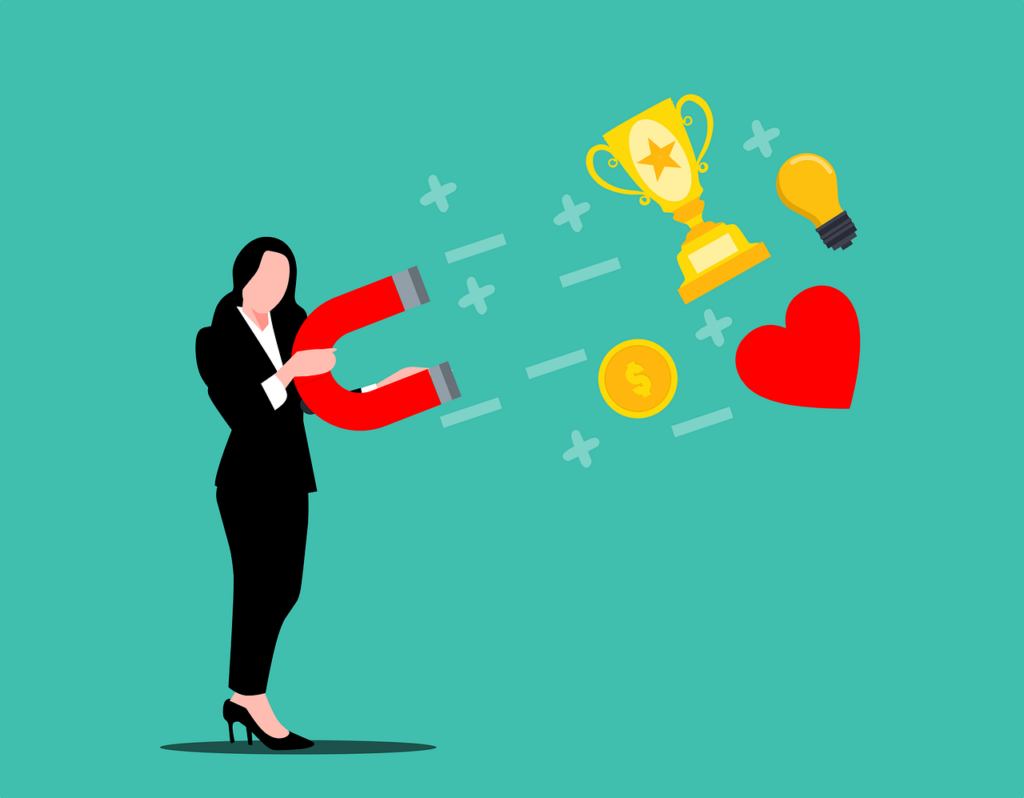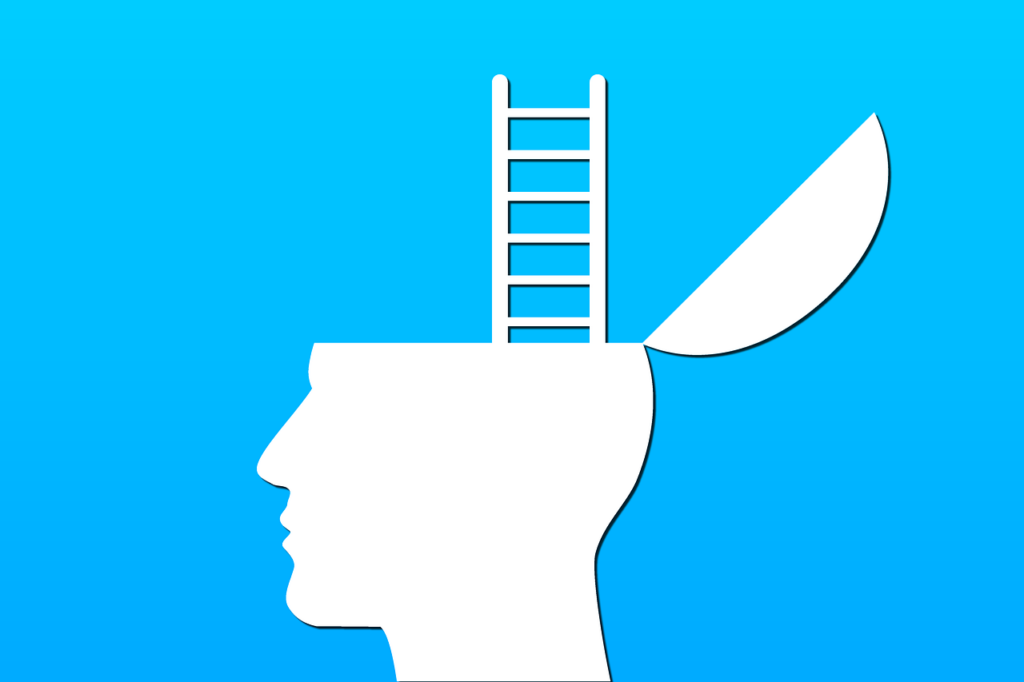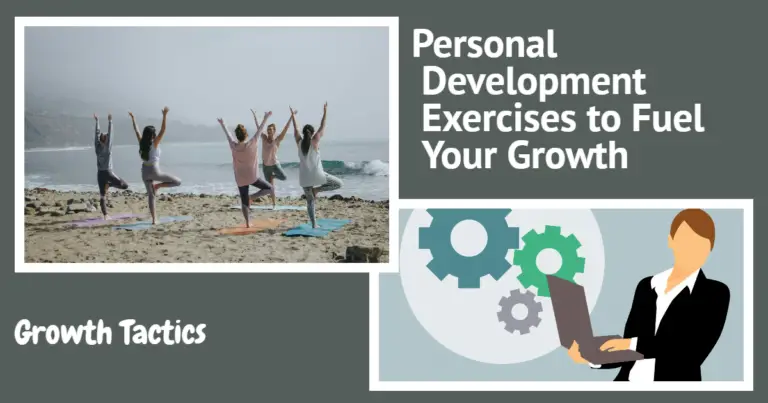Personal development is the process of enhancing your skills, qualities, and life experiences to reach your full potential. It involves expanding your perspectives, improving your soft skills, and taking action to grow in your personal and professional life. There are many benefits to focusing on your personal development.
Personal development can lead to improved well-being and mental health. Activities like journaling, meditation, and self-reflection allow you to better understand yourself, your values, and your goals. This self-awareness provides clarity and purpose that fuels growth. As you develop emotional intelligence and resilience, you’re better equipped to handle challenges that come your way.
Personal development also strengthens relationships. Exercises that build empathy, communication skills, and emotional intelligence help you connect on a deeper level. You become a better partner, family member, friend and colleague. Developing yourself makes you more understanding, patient, and able to resolve conflicts.
Lastly, personal development accelerates career growth. Improving soft skills like leadership, teamwork, and problem-solving makes you more effective at work. Setting professional goals and taking action helps you achieve promotions and transition into new roles. Focusing on continuous learning also keeps your skills sharp. Overall, developing yourself unlocks opportunities.
Jump To Section
Know Yourself Through Self-Reflection

Self-reflection allows you to develop a deeper understanding of yourself, your values, and your motivations. Taking time for introspection through practices like journaling, mindfulness, and values assessment can provide clarity and reveal blind spots.
Journaling is a simple yet powerful exercise for self-reflection. Set aside 10-15 minutes each day to write freely about your thoughts, feelings, and experiences. Don’t censor yourself – the purpose is to explore your inner world. Regular journaling can increase self-awareness, help process emotions, foster creativity, and improve mental well-being.
Mindfulness involves nonjudgmental awareness and focus on the present moment. Meditation is a common mindfulness practice. Start with just 5-10 minutes per day sitting quietly, paying attention to your breath and bodily sensations. Over time, mindfulness can reduce stress, improve focus, and provide insight into your thought patterns.
Values assessment involves identifying your core values and assessing how well you are living according to them. Understanding your values provides a moral compass to guide your choices and actions. Reflect on what really matters to you – perhaps integrity, growth, and compassion. Then, examine any misalignment between your values and daily life. Adjustments can help you live more purposefully.
Expand Your Perspectives
Expanding your perspectives is crucial for personal growth. It pushes you out of your comfort zone and exposes you to new ideas, cultures, and ways of thinking. Here are some ways to open your mind:
- Read books on diverse topics like history, science, spirituality, or sociology. Non-fiction books introduce you to new concepts and facts to enrich your knowledge. Reading fiction also builds empathy as you immerse yourself in characters’ experiences.
- Listen to podcasts covering current events, social issues, business, or topics you want to learn about. Hearing different viewpoints and ideas voiced in podcast conversations is an easy way to expand perspectives.
- Take online courses in subjects you’re curious about. The internet offers affordable, on-demand classes on everything from photography to philosophy. Taking a course helps you dive deep into a topic with an expert’s guidance.
- Travel to new places in your own country or abroad. Immersing yourself in different cultures and surroundings pushes you to see the world from a new lens.
- Have conversations with people from different backgrounds, generations, cultures, or viewpoints. Ask them questions to understand their experiences and what shaped their beliefs.
Broadening your horizons requires actively seeking out new inputs. An open, curious mindset allows you to continuously grow.
Practice Affirmations

Affirmations are positive statements you repeat to yourself to reinforce helpful beliefs and attitudes. Make affirmations specific, positive, and focused on your capabilities. Say them out loud or write them down and repeat them regularly.
Some examples of personal affirmations are:
- I am capable of achieving my goals.
- Challenges help me grow.
- I believe in myself.
- My hard work will lead to success.
- I have many unique strengths.
Reciting positive mantras can boost your confidence, resilience and motivation. Take some time each morning or before challenging tasks to repeat uplifting phrases. Useful mantras include:
- I am strong.
- I can handle this.
- My potential is limitless.
- I am worthy and deserving.
- I am improving every day.
Regular affirmations help rewire your brain’s neural pathways to think more positively over time. Make affirmations part of your daily routine to cultivate self-belief and counter self-doubt.
Improve Your Soft Skills
Soft skills like communication, emotional intelligence, and adaptability are crucial for professional success. Exercises to improve these skills often involve interacting with others to practice active listening, empathy, teamwork, and handling constructive feedback.
Some examples include:
- Communication training – Activities like roleplaying various scenarios, delivering presentations, and group discussions can build your interpersonal skills. Focus on listening, asking thoughtful questions, and clearly articulating your perspective.
- Emotional intelligence training – Exercises that help you identify emotions in yourself and others, regulate your responses, and demonstrate empathy can develop your EQ. Small groups can discuss relationship challenges or analyze emotional reactions to workplace issues.
- Adaptability training – Change your typical routines, take on new responsibilities, or brainstorm creative solutions to problems. Stepping outside your comfort zone stretches your ability to adapt. Roleplay how you would navigate an unexpected challenge at work.
Practicing these soft skills in a safe training environment allows you to improve while receiving supportive feedback. The more you exercise these human-centered capabilities, the more natural they become. This leads to greater confidence and competence in handling workplace interactions.
Set Goals and Take Action
Setting clear goals and taking steps to achieve them is crucial for personal development. Start by defining your goals using the SMART framework – Specific, Measurable, Achievable, Relevant, and Time-bound. Having concrete goals makes it easier to create an action plan and measure progress.
Once you’ve set SMART goals, break them down into smaller action steps that you can tackle one at a time. Creating an implementation plan that outlines when and how you’ll complete each step helps hold yourself accountable. Schedule actions on your calendar, track progress in a journal, or use apps to stay on track.
It’s also key to anticipate obstacles that may get in the way so you can plan for them. Identify how to overcome setbacks if they happen. Taking action consistently, even in small ways, is what bridges the gap between goals and achievement. Celebrate progress to stay motivated.
Seeking support can strengthen your ability to take action. Share your goals with a friend or join a goal buddy group. Having someone to discuss plans with and report back to helps prioritize actions and makes you more likely to follow through. With clear goals, smart planning, and consistent action, you’ll be on your way toward new growth and success.
Adopt a Growth Mindset

Having a growth mindset is essential for personal development. This means believing you can improve through effort and embracing challenges as opportunities to get better. People with a growth mindset see failure as a chance to learn, rather than a permanent deficiency.
Some ways to cultivate a growth mindset include:
- Reframing negative self-talk into positive statements. For example, instead of saying “I’m not good at this,” say “I’m going to get better at this with practice.”
- Viewing challenges as a chance to expand your abilities, rather than threats. Each difficulty makes you more resilient.
- Focusing on the process of learning and improving, not just the end result. Progress takes time, effort, and patience.
- Seeing constructive feedback as helpful for your growth, not as a criticism of your fixed traits. Use it to fuel improvement.
- Finding lessons and inspiration in others’ success instead of feeling threatened. Their accomplishments show what’s possible.
- Celebrating small wins and milestones as you work toward larger goals. Recognize incremental progress.
With persistence and effort, you can adopt a growth mindset. This empowers you to see unlimited potential for improvement in yourself and embrace the journey of lifelong learning.
Build Better Relationships
Strong relationships are essential for personal growth. By building better connections, you expand your perspectives and learn more about yourself through others. Some ways to cultivate stronger bonds include:
Practicing active listening. Make a conscious effort to listen more than you speak. Avoid interrupting or thinking about what you’ll say next. Focus on understanding the other person. Ask thoughtful questions and reflect back on what you heard to show you truly listened.
Exhibiting empathy. Put yourself in the other person’s shoes. Seek to understand their experiences, challenges, and emotions. Withhold judgment and offer compassion. Recognize everyone is fighting their own battles.
Being vulnerable. Open up about your struggles, fears, and imperfections. Admit when you’re wrong. Express your authentic feelings and thoughts. Vulnerability fosters deeper connections.
Collaborating. Work together toward shared goals. Find win-win solutions during conflict. Share your resources and ideas generously. Support each other’s growth. Celebrate collective achievements.
Giving emotional support. Provide encouragement during tough times. Validate their feelings. Offer perspective when overwhelmed. Be patient and reassuring. Remind them of their strengths.
Bonding through activities. Do meaningful activities together. Share meals, volunteer, travel, exercise, or take a class. Joint experiences build rapport and trust.
Focusing on relationships accelerates personal growth. You gain new perspectives, feel more connected, and develop interpersonal skills. Make time for the people who matter most.
Practice Self-Care
Taking care of yourself should be a priority in your personal development journey. Self-care helps manage stress, find balance, and cultivate mindfulness.
Stress management is crucial for overall well-being. Try relaxing activities like yoga, deep breathing, going for a walk, or meditating. Set aside time each day to decompress and detach from stressors. Don’t be afraid to say no to extra responsibilities when you’re feeling overwhelmed.
Work-life balance prevents burnout. Make sure to take breaks, use your vacation days, and set boundaries with work. Spend quality time on relationships and hobbies you enjoy outside of work. Evaluate your schedule to create space for self-care.
Mindfulness techniques help you stay present and focused. Try a simple breathing exercise by inhaling for 5 seconds, holding for 2 seconds, and exhaling for 5 seconds. Go for mindful walks and tune into your senses. Journal to process emotions. Meditate using apps like Calm or Headspace. Being mindful reduces anxiety and boosts mental health.
Find Accountability Partners

Finding people to hold you accountable as you pursue personal development can provide motivation and support. Sharing your goals and progress with others helps you stay on track when you might otherwise lose focus.
Look for people who want the best for you and will give honest, constructive feedback. Meet regularly to update each other on progress and obstacles. Knowing someone else is invested in your growth creates healthy pressure to follow through.
You may also look for an “accountability buddy” who is working toward similar goals. Check-in frequently and cheer each other’s wins. When one person slips, the other can provide encouragement. Having someone alongside you on the journey makes it more enjoyable.
Joining or forming a “mastermind group” of like-minded individuals focused on growth can provide community, inspiration, and accountability. Brainstorm ideas together and be a sounding board for each other. Surrounding yourself with others who share your commitment to self-improvement can help you achieve your potential.
Wrapping Up
In conclusion, personal development exercises are crucial tools for fostering growth, enhancing self-awareness, and unlocking one’s full potential. By engaging in activities like goal setting, journaling, meditation, skill acquisition, and seeking feedback, individuals can embark on a transformative journey toward self-improvement.
These exercises not only aid in personal growth but also in professional advancement, paving the way for a fulfilling and successful life. Committing to a consistent personal development routine can lead to remarkable changes, empowering individuals to achieve their dreams and become the best versions of themselves.


